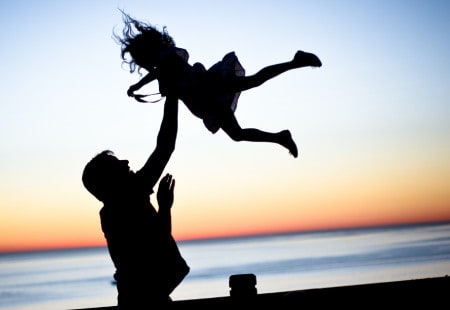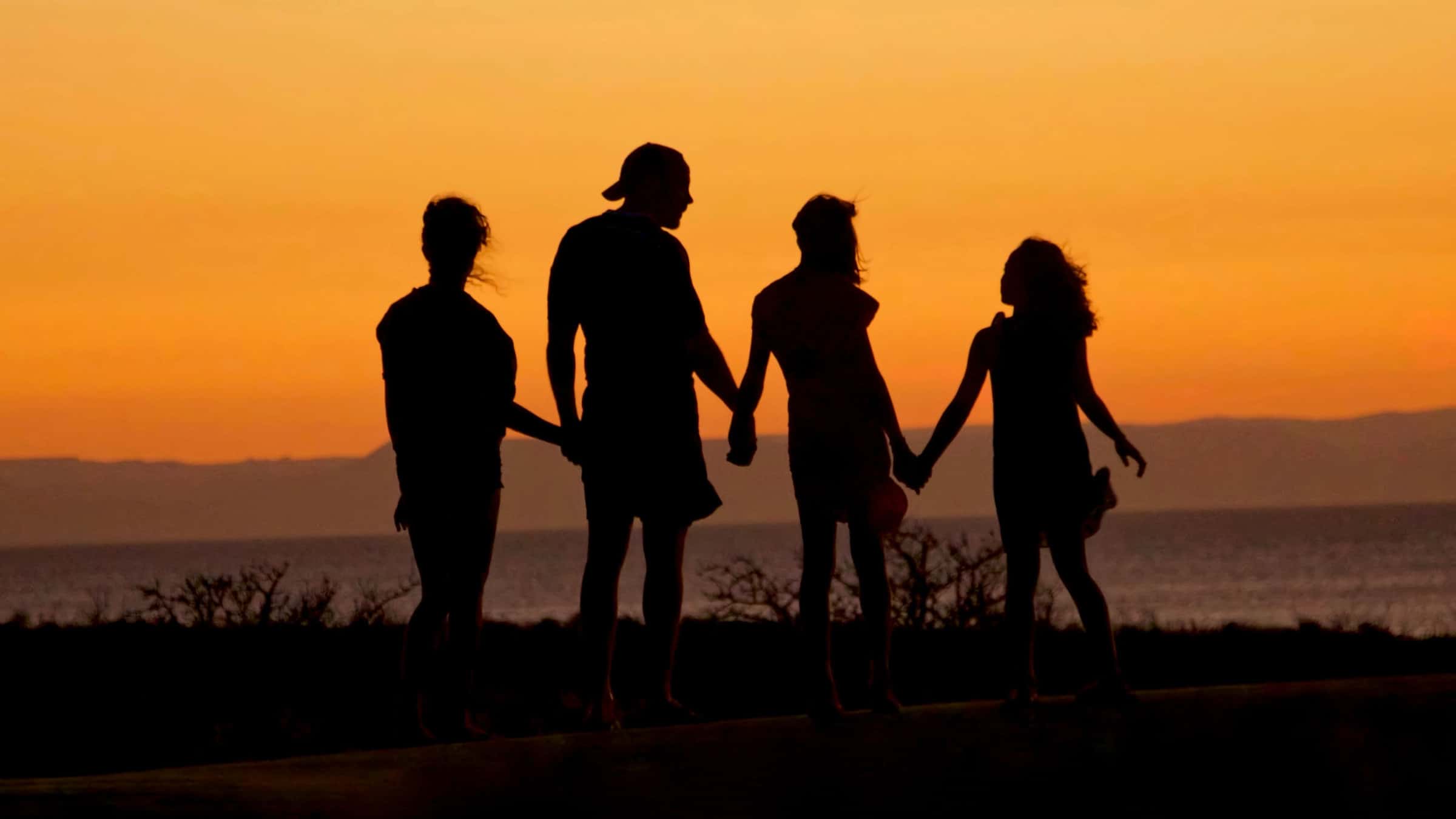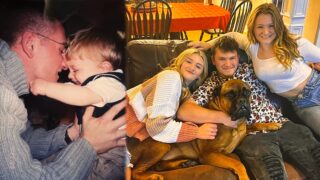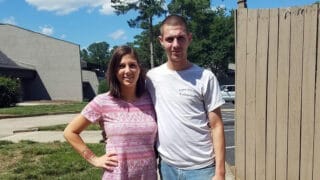By Casey
On December 30, 2020, my grandfather returned home from the grocery store to find his son, my dad, dead on the floor of the bathroom. The autopsy would later reveal that he had suffered a fatal cardiac event brought on by 35 years of heavy drinking that had devastated his body.
Nine years earlier, on a January night, my mom was out of town visiting her sister in Connecticut. My dad had promised to take my younger brother and me out for dinner. When I went into his home office to ask him if he was ready to go, I noticed a funny smell. On the way to the restaurant, his driving was erratic. He seemed out of it at the table, disinterested in conversation and neglecting his plate while knocking back drinks. And when it came time to pay, he was completely tuned out to the world around him, to the point that 12-year-old me dug his wallet out of his pocket and tearfully wondered how in the world one pays with a credit card.
I called my mom, crying, thinking that my dad was horribly ill. The kind owner of the restaurant comforted me until my mom could arrange for a family friend to come pay the bill, take us home, and stay with us until she could fly back. She then had to sit us down for one of the hardest conversations of her life: to explain to her two young children what addiction was, and that their dad had an addiction to alcohol.
The dreadful reality
This began one of the worst years of my life. My mom struggled to keep our family together. She banned alcohol from our house and breathalyzed my dad at random. He snuck bottles in at night and hid them at the bottom of the trash can. I remember I spent that summer so angry at my dad that I locked myself in my room all day avoiding him, only sneaking out at night to feed myself. Over the years that anger turned to pity, and that pity turned to a sad understanding. At first, he denied that he had an issue with alcohol. Later, he believed he had a problem but didn’t want help. But more accurately, he had a problem and didn’t believe he could be helped.
At the end of that year, my mom asked my dad to move out and for them to legally separate. She still loved him, but she had to protect us. My mom, too, had an addiction. She and my dad were big partiers in college, and they kept drinking that way even after they graduated. But she recognized the hole she was being sucked into, sought help, pulled herself out, and spent the next 20 years trying to help my dad escape that same fate, until she had to leave for the sake of us, her children.
My dad moved a couple hours away from us, into my grandparent’s second property. He didn’t fight hard for custody. Even he knew he was not capable of being an adequate parent to two pre-teens. I remember my 13th birthday, waiting up until midnight the next day for a “happy birthday” call that never came. Was he neglectful? Yes. But he was a man fighting a horrible disease. His family and doctors believed that his drinking stemmed from deep-seated anxiety, and that his addiction had caused him to fall into depression. He admitted to my grandfather at one point that he had had at least one drink every day since he was a teenager. He once said to our family therapist, “I drink just to feel normal.”

The family intervention
He fell into isolation living on that property and working from home. His only company was my grandfather. Over the next several years, his drinking worsened. In a last-ditch attempt to save him from himself, my family devised an elaborate plan that involved my grandfather taking him on a road trip that would eventually end in Florida, where we could implement the Marchman Act, which allows for mandatory placement in a rehabilitation facility if someone can prove that another’s addiction is a danger to themselves.
He was court ordered to stay for 60 days, and those 60 days were some of my happiest with him since I was a child. Sober, he became a different person; one with whom I could actually converse. My dad, my brother, and I also participated in family therapy, which was hard. My dad literally didn’t remember that he had missed my high school graduation and cried with remorse when I had to tell him.
But the day he left the facility, he drank. He stopped the antidepressants that he had been prescribed because, like his blood pressure medication, he couldn’t take them with alcohol. He fled west, fearful that his own family would try to have him sent to a rehabilitation facility again and spent over a year hopping between small motels in the desert of Nevada and California. That was also a difficult time for me, since he was so angry at his parents and my mom. I was the only person he would talk to, and it fell on me to let them know each time I heard from him that he was still alive.
My father’s return to the East Coast
He returned in the spring of 2020, and I think we were all so afraid he would run off again that the lesser evil was to have him drink here, where we could try to keep him safe. I saw him twice that year. The first time, we met for crabs so that I could introduce him to my boyfriend. He showed up with a few drinks in him, and had a few more over the course of lunch, but he was lucid enough that it was a really nice time. The last time I saw him before he died was at my grandparents’ beach house for my birthday weekend. He pulled my boyfriend aside one night when I was already asleep, and ominously ordered him to “take care of her,” as though he knew his time was numbered.
The last time I talked to him on the phone was Christmas Eve of 2020. I had drawn a boundary years ago that, if he called me and was audibly drunk, I would hang up the phone. It haunts me that I had to do that the very last time we would ever speak.
After his death, I corresponded by email with my dad’s best childhood friend – a man who he had grown up with, gone to college with, and who had been the best man at my parents’ wedding. My dad, by his account, had once been charismatic, confident, and witty. And he was, in his lucid moments, a loving father. But by the end of his life, that side of him rarely shined through, having been replaced by bitterness and anger. He was a man who had lost his wife, his children, his job, and ultimately himself to his addiction.
The biggest lesson I learned about my dad
If there is a lesson to be learned from my dad’s life, it is that no one is truly beyond help. Trust your family, friends, and doctors when they tell you that you can find recovery, even if it feels impossible. Always know that your loved ones act in your best interest, even if it doesn’t seem that way at the time – that’s what love is. And take comfort in the knowledge that you are not alone.
My dad’s funeral was held in Florida, on a small boat. My brother and I, only 19 and 21, released his ashes into the Gulf Stream. He had always loved traveling, especially by sea. So, in a way, he is now traveling the whole world.
I don’t know that I believe in an afterlife, but I do believe that he is now at peace. I only wish that he had been able to see that it was possible for him to be at peace while he was alive.

Processing the aftermath
Grief is a long, hard road to walk. Grief is not linear; one day it feels like it’s getting a little easier and the next I’m right back to that first moment I learned of his death. Of course, I think of him every day. But as time goes on, I have found the things that remind me more of the happy moments I had with my dad than of the sad ones.
Participating in therapy, family therapy, and Al-Anon meetings have all been incredibly helpful to me in coping with both my dad’s life and death. Sharing happy memories of my dad with his other loved ones has helped also.
But it’s supporting others who have substance use disorder that has given me the most purpose and closure.
Recent Stories
-

-
 Story
StoryLandin’s Story
-
 Story
StoryMy Brother’s Story

